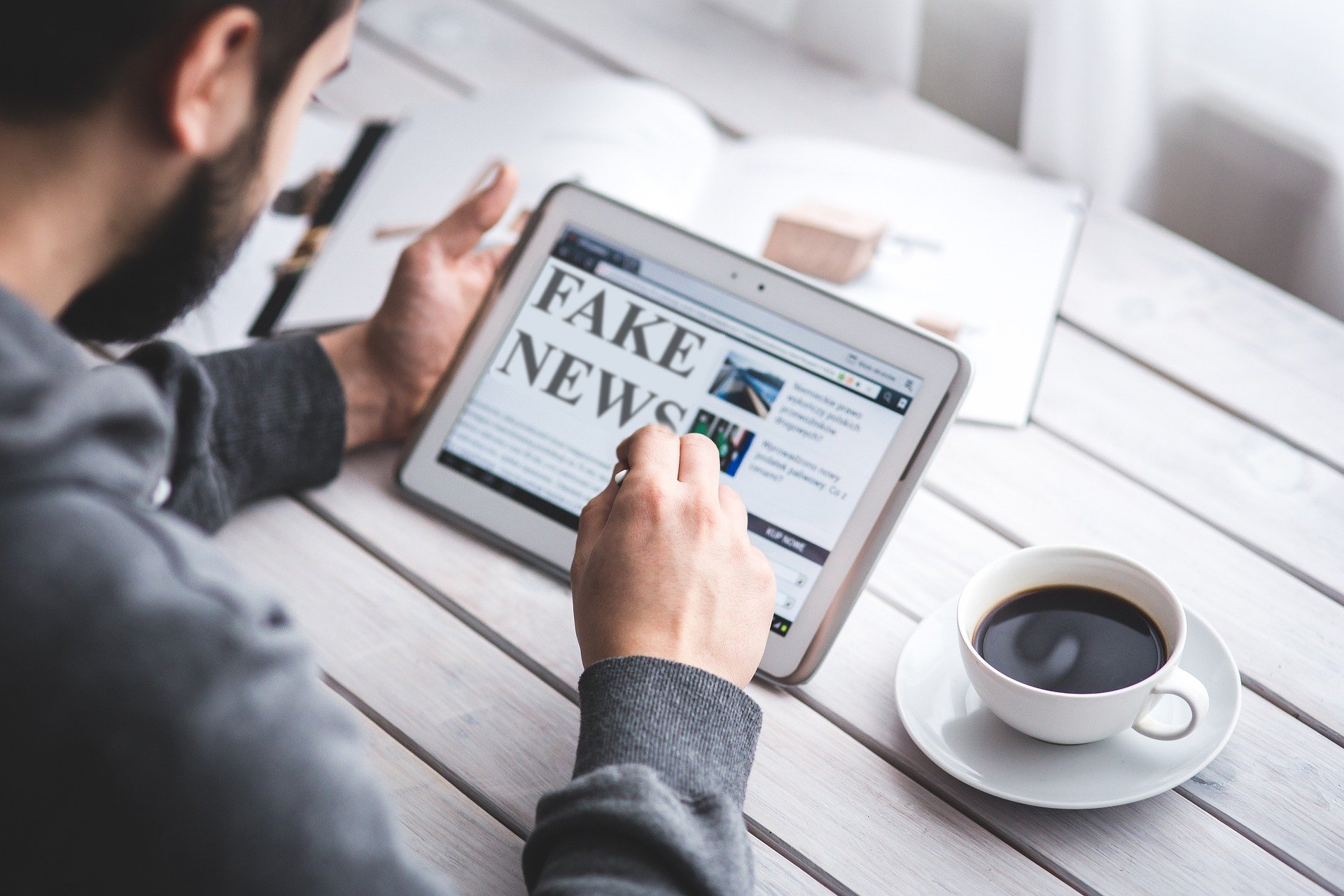‘Fake news’ is a phrase that has unfortunately grown in popularity over the last four years thanks to Donald Trump, the 45th President of the United States.
Thanks to his statements, that were often either controversial or false, it generated a staggering amount of free media coverage which resulted in the spread of fake news like wildfire. Even the most reputable publications have been caught up in it.
What is fake news?
Before I start, here’s a little more information about fake news… It can be defined as news, stories or hoaxes created to deliberately misinform or deceive readers. More often than not, these stories are created to influence people’s views, push a political agenda and in some cases can be a profitable business for online publishers. These ‘fake news’ stories can be created by websites that deceive people by looking like reputable news organisations, or by people like Donald Trump, who make bold statements that are not necessarily true.
Fake news is not a new phenomenon, but it has been popularised in the last few years, not only because of Trump but also because of social media.
Fake news and social media
Before the rise in social media, we largely consumed news from trusted sources, journalists and media outlets that are required to follow strict codes of practice. However, social media platforms such as Twitter have enabled a whole new way to publish, share and consume information, unfortunately with very little regulation or editorial standards.
Social media sites play a huge role in the rise of ‘fake news’. According to OFCOM, half of UK adults get their news stories from social media, and it can often be hard to tell which stories are credible or not - all it takes is one tweet to go viral and you have a fake story spreading like wildfire.
From my research, there are many different types of ‘fake news’ but I’ve summarised them into four categories:
1. Misleading headlines
This is the case for stories that are not completely false but can be distorted using misleading or sensationalist headlines, also known as clickbait. This kind of news can spread quickly on social media sites because only the headline and snippets of the article can be seen.
2. Satire/parody
This is when news sites, such as the Onion or Daily Mash, publish fake news stories as humorous attempts to satirize the media, but can fool people when shared out of context.
3. ‘Sloppy’ journalism
I use the term ‘sloppy’ very lightly, because at the end of the day journalists are still human and can make mistakes just like the rest of us, only theirs are much more public. Sloppy journalism can result in a ‘fake news’ story because they publish a story with unreliable information or without fact checking, which can then result in misleading readers. This usually happens when there is a lot of pressure on a journalist to publish a breaking news story before any other news outlet does (which is very hard to do now as a result of social media).
4. Intentionally deceptive
This is when news has been intentionally fabricated, and has a clickbait headline, that appeals to a reader’s emotions and curiosity, to increase the number of clicks/page views a website receives because they earn money from it. Either that, or to spread confusion and sensationalist propaganda. This type of news is often distributed through websites that tend to replicate reputable news sites, and on social media.
So, ‘fake news’ is a very popular thing and can be very damaging. But there is something that we can do. In the world of public relations, we can ensure that any stories we use for reference are genuine, and we can look beyond the headline. A clickbait sentence might draw you in, but it isn’t the whole story, we can go deeper than that.
What can PR do?
PR professionals can act responsibly, our output should not support the spread of fake news. We can be authentic. Yes, PR is often about finding the opportune moment to join conversations, but we can decide what conversations we join, as well as what we say for ourselves and on our clients’ behalf.
Responsible PR professionals provide facts, encourage a transparent relationship with journalists and the public, and are responsive to questions and issues as they arrive. In doing so, fake news and alternative facts are revealed for what they really are and the public trust is built over time to combat and filter out this noise.
Here at BlueSky Education, we don’t create the story, we use the research and faculty that has been provided and let the facts speak for themselves. We will continue to work with thought-leaders around the world on their ideas to better our societies. Whether that’s how charities can improve their marketing, identifying the need to equalise pay for working mothers, or simply on the importance of a good night’s sleep. We’ll help students to talk about their experiences in universities and business schools, educating themselves, and working towards a better future.
As PR professionals, we can make our post-truth world become a little more truthful.
I don’t think fake news will ever go away, but we can work to reduce the spread of it as much as possible. As I said before, the phrase ‘fake news’ rose in popularity because of Donald Trump, but as of January 2021 he will no longer be the President of the United States and I wonder if this fake news saga will begin to die down as a result.




